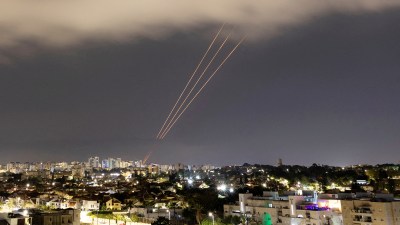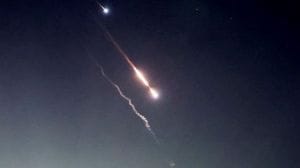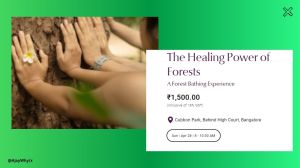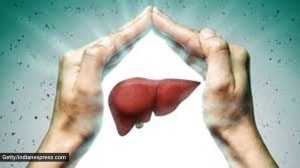- India
- International
Explained: Who was Kaka Hathrasi, the poet PM Modi quoted in Parliament
Hathrasi’s humour was “light, bright and sparkling”, but also razor-sharp and unsparing.
 Kaka Hathrasi was honoured with the Padma Shri in 1985 for his contributions to Hindi literature (Express Archive)
Kaka Hathrasi was honoured with the Padma Shri in 1985 for his contributions to Hindi literature (Express Archive)
Replying to the Motion of Thanks to the President’s address in Rajya Sabha on Thursday (February 6), Prime Minister Narendra Modi quoted Hindi poet Kaka Hathrasi to chide the Opposition for its “stagnation” and “unwillingness to move forward”.
“I had hoped for a new beginning in the new decade, I hoped for fruitful discussions in Parliament, from which the government could learn. But in that, I have been disappointed. You seem unwilling to move beyond where you are stuck. You have made stagnation your virtue,” the PM said, going on to quote a paragraph from ‘Kuch To Standard Banao’ by Hathrasi.
The lines go: “Prakriti badalti kshan kshan dekho, badal rahe anu, kan kan dekho, Tum nishkriya se pade hue ho, bhagyavaad par ade hue ho, Chhodo mitra purani dafli, jeewan mein parivartan laao, Parampara se unche uthkar, kuch to standard banao (Nature changes every second, every particle is changing, you are lying inert though, on luck alone hanging, leave behind this old tune, bring in some changes, rise beyond traditions, do raise your standards).”
Who was Kaka Hathrasi?
Kaka Hathrasi is counted among the foremost poets of ‘haasya’ (humour) and ‘vyanga’ (satire) in Hindi literature. Born Prabhulal Garg on September 18, 1906 (he died on September 18, 1995), he took the name ‘Kaka Hathrasi’ based on his hometown, Hathras in Uttar Pradesh, and on the popular character of a ‘Kaka’ (uncle) he had essayed in a play.
Prabhulal’s father died when he was a baby, and he spent much of his early years at his maternal uncle’s home in nearby Iglas. Later, he came back to Hathras and lived out his life there.

Hathrasi was honoured with the Padma Shri in 1985 for his contributions to Hindi literature. Apart from humour, he wrote on classical dance and music under the pen name ‘Vasant’. Kaka Hathrasi was also an accomplished painter.
Read | In speeches to Parliament, PM Modi quotes Nehru, Ambedkar, Shastri on welcoming Hindu refugees
Kaka Hathrasi’s works and popularity
Hathrasi is credited with mainstreaming satire as a form of poetry in Hindi literature.
His humour is unsparing, but never acerbic. His poetry looks at politics, social ills, the pomposity of the cultural elite, the everyday struggles of middle-class life with the same razor-sharp, but good-natured gaze.
Apart from satire, Hathrasi also wrote purely fun poems that are unpretentious, accessible, and hilarious.
Jameel Gulrays, the founder of Katha Kathan, an initiative to promote Indian languages, says: “The contributions of Kaka Hathrasi to ‘hasya kavita’ (humour poetry) in Hindi are comparable with Mirza Ghalib’s to Urdu poetry. He founded a whole new genre of humour-writing, which authors since then have tried to emulate. But a Hathrasi can’t be born in Hindi poetry today, just as no new Faiz can come to Urdu. These poets lived the life they wrote about, which is why their language and their literature had an authenticity which today’s poets, thinking in English and writing in Hindi, can’t replicate.”
Many of Hathrasi’s works are as relevant today as they were when he wrote them, even though some would likely earn him nasty tags in the distinctly humourless times we live in.
On inflation and unemployment, Kaka Hathrasi wrote:
“Bekaari aur bhukhmari mehengai ghanghor, Ghise-pite yeh shabd hain, band keejiye shor, Abhi zaroorat hai janta me tyag aur balidaan ki, Jai bolo beimaan ki (Unemployment, starvation and soaring inflation, are all tired words, just stop with the lamentation, what we need is the public sacrificing in earnest, all hail the dishonest).”
When Neil Armstrong became the first man to walk on the Moon, Hathrasi wrote that the discovery of “just rocks and stones” had destroyed the wonder, magic, and romance associated with Earth’s nearest neighbour. One of the paras reads: “Parvati kehne lagin, suniye Bholenath, Ab achchha lagta nahin, chandra aapke maath, Chandra aapke maath, daya humko aati hai, Buddhi aapki tabhi, thass hoti jaati hai (Parvati to Bholenath one day said, listen, about that moon on your forehead, it no longer looks good, makes me pity you, I do fear it’s affecting, your brains too).”
Read | In Rajya Sabha, Opposition unites only in spirit, no plan to show
Hathrasi, of course, was not trying to insult Lord Shiva. In a poem that talks of his own wife cancelling Karva Chauth because of the newly de-glamourized moon, and women no longer wishing to be called Chandramukhi, the mention of Shiva-Parvati shows how intrinsically and endearingly Gods were part of ordinary folks’ lives.
Hathrasi made it a point to keep his works accessible. He said he was writing for “both, the scholar and the rickshawallah”. A measure of this is that his works were as popular among listeners as readers. For decades, Hathrasi was greatly in demand at ‘kavi sammelans’ and poetry readings.
One reason for this was Hathrasi’s personality.
He was a great reciter, his humour was often directed at himself, and at other contemporary poets. Hathrasi kept a full beard, and joked that the secret to Suryakant Tripathi Nirala and Rabindranath Tagore becoming great poets was their impressive facial foliage.
Once, while looking for hotels in Mussoorie, a rickshawallah offered to get him free rooms in a mosque. The poet wrote: “Kaham Kaka Kavi, kya bakta hai gaadiwaale, sabhi miyan samjhein hain, tumne daadhiwaale? (Oh rickshawallah, what are these words, you think are Muslim, all men with beards?)”
📢 Express Explained is now on Telegram. Click here to join our channel (@ieexplained) and stay updated with the latest
Kaka Hathrasi’s works other than poetry
In 1932, Kaka Hathrasi started Garg and Co., a publishing house dedicated to making Indian classical music and dance more accessible to the people. This was later renamed Sangeet Karyalaya, which is still active.
Its website says: “Founded in 1932, at Hathras, India, Sangeet Karyalaya was originally known as Garg and Co. It was the time of the British Raj, and Indian Music lay far away from the masses, closeted in palaces and temples, with access limited only to the rich and affluent. The wisdom accumulated through centuries of deep learning and evolution lay locked in books far beyond the reach of the common man, in the libraries of the nobility. It was within such a background of adversity that “Kaka Hathrasi”, Shri Prabhulal Garg, decided to revive and breathe new life in Indian Classical Music and bring it to the common man.”
Mukul Khadelwal, Associate Professor of Hindi in Jharkhand’s Kolhan University, says: “Hathrasi was truly a ‘jankavi’, a people’s poet. He wrote of issues that resonated with the masses, in a language they understood. He made them laugh, but he also made them think, and question. His simple language did not take away from his literary excellence, in fact, it added to it.”
Don’t miss from Explained: From Tamil Nadu to Kashmir — Meet the poets the FM quoted in her Budget speech
The PM and the poet
This is not the first time that PM Modi has quoted Hathrasi in Parliament.
In February 2017, he had used the poet’s lines to question the Congress’s “intent”. “Antarman mein khojiye, chhipa hua hai khot, mil jaayegi aapko, bilkul satya report (look within, and you will find where lies the fault, your own heart will give you, the accurate report),” the PM had said.
However, the poem Modi has quoted this time is a satire on people choosing the wrong ways to raise their standards. After asking people to “rise above traditions”, like the PM did to the Opposition, the poem talks of cutting off your parents after taking their money and using affected language to be considered “high-standard”.
More Explained
EXPRESS OPINION
Apr 19: Latest News
- 01
- 02
- 03
- 04
- 05








































